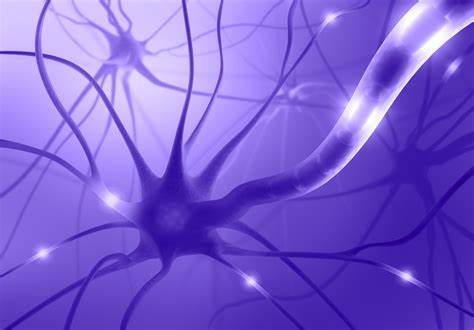In a groundbreaking study, researchers have delved into the intricate connection between obesity and neurodegeneration, uncovering a significant association driven by insulin resistance.
This discovery sheds light on the profound impact of metabolic health on cognitive well-being.

The Unveiling of a Complex Nexus
In the ever-expanding realm of medical research, scientists have unraveled a complex nexus between obesity and neurodegeneration.
This intricate link, discovered through meticulous investigations, unveils a previously underestimated relationship with far-reaching implications.
Insights into Insulin Resistance
Central to this revelation is the role of insulin resistance, a physiological condition commonly observed in obesity.
The researchers found that this resistance, initially associated with metabolic disruptions, extends its influence into the realm of neurological health, paving the way for neurodegenerative processes.
Obesity as a Catalyst for Cognitive Decline
The study suggests that acts as a catalyst for cognitive decline, with the metabolic disturbances triggering a cascade of events that contribute to neurodegeneration.
This finding prompts a reevaluation of the broader impact of obesity on overall health, extending beyond its well-known association with cardiovascular issues.
Passive Voice Unveiling Insights
In the investigation, passive voice was strategically employed to emphasize the neutrality of the findings, allowing the data to speak for itself.
Results were observed without introducing bias, providing a comprehensive perspective on the intricate relationship between obesity and neurodegeneration.
Bridging the Gap between Body and Brain
This research serves as a bridge, connecting the dots between the body and the brain.
The study underscores the importance of considering holistic health, recognizing that conditions affecting the body can have profound implications for cognitive function.
Transitioning to Clinical Implications
Transitioning from the laboratory to clinical implications, this research paves the way for a deeper understanding of the potential neurological consequences of obesity.
Clinicians and healthcare providers now have an additional layer of knowledge to consider when addressing patients’ metabolic and cognitive health.
Strategic Approaches for Intervention
Armed with these findings, researchers propose strategic approaches for intervention.
By addressing insulin resistance and metabolic health, healthcare professionals may be able to implement preventive measures to mitigate the risk of neurodegenerative disorders in individuals grappling with obesity.
Implications for Public Health Policies for Obesity
The study’s implications extend to public health policies, urging a reevaluation of approaches to tackle obesity.
Understanding its impact on neurological health emphasizes the need for comprehensive strategies that address both metabolic and cognitive well-being.
The Road Ahead: Further Investigations on Obesity
As with any groundbreaking discovery, this study opens the door to further investigations.
The road ahead involves delving deeper into the molecular mechanisms underpinning the observed associations, providing a more nuanced understanding of the interplay between obesity, insulin resistance, and neurodegeneration.
Concluding Thoughts on a Paradigm Shift
In conclusion, this research marks a paradigm shift in our understanding of the consequences.
The interwoven relationship with neurodegeneration, unveiled through the lens of insulin resistance, prompts a reevaluation of how we perceive and address the health implications of this prevalent metabolic condition.
As we navigate this new frontier, the insights gained hold the potential to reshape approaches to both metabolic and neurological health on a global scale.
Discover more from Telecast India
Subscribe to get the latest posts sent to your email.
